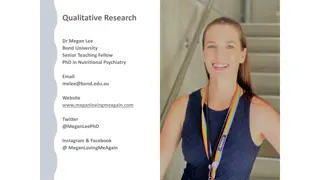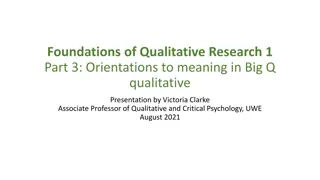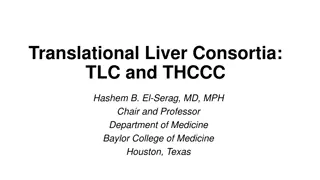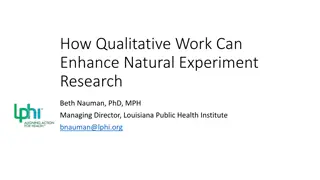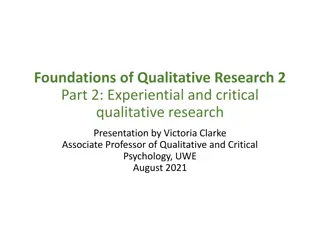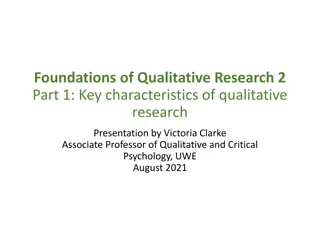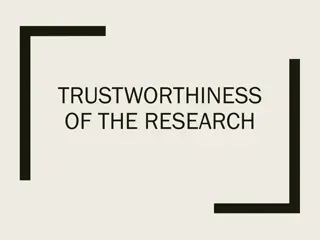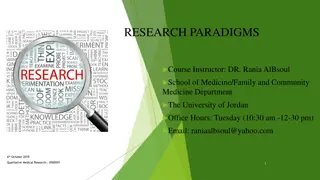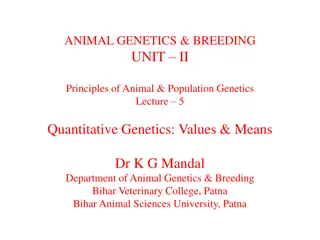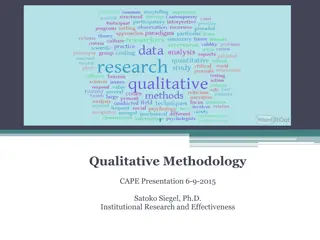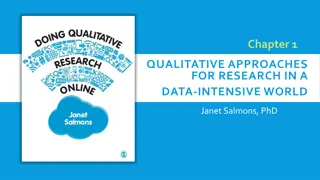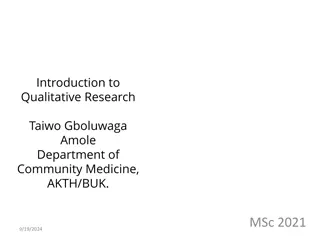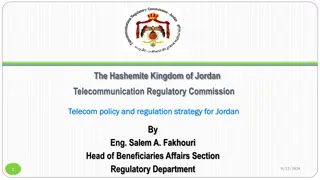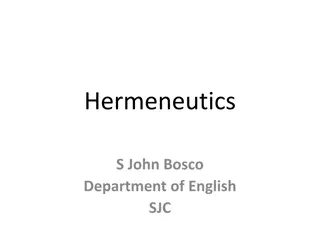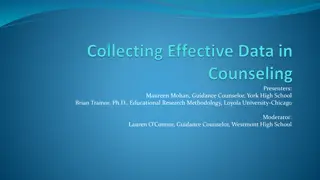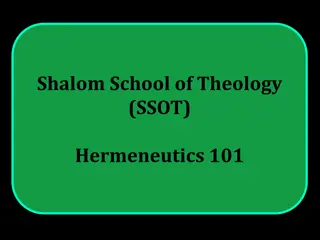Understanding Hermeneutics and Qualitative Research: TRC 2016 Insights
Delve into the world of hermeneutics with insights from the Transpersonal Research Colloquium 2016 in the UK. Explore the origins, key figures like Friedrich Schleiermacher and Hans-Georg Gadamer, and the concept of intuitive exegesis. Discover how hermeneutics shapes interpretation, communication, and translation across various traditions.
Uploaded on Oct 11, 2024 | 0 Views
Download Presentation

Please find below an Image/Link to download the presentation.
The content on the website is provided AS IS for your information and personal use only. It may not be sold, licensed, or shared on other websites without obtaining consent from the author. Download presentation by click this link. If you encounter any issues during the download, it is possible that the publisher has removed the file from their server.
E N D
Presentation Transcript
Hermeneutics and Qualitative Research Transpersonal Research Colloquium (TRC) 2016 United Kingdom
Professor Emerita, Rosemarie Anderson, Ph.D. Professor Emerita, Rosemarie Anderson, Ph.D. Sofia University, Palo Alto, CA USA rosemarie.anderson@sofia.edu www.rosemarie.anderson.com
Hermeneutics? What is it? Etymologically, from Hermes, Greek God of Communication Art of Interpretation, Communication, & Translation Origins within all religious & wisdom traditions with sacred texts For oral traditions, interpretation is immediate
Classical European Hermeneutics Friedrich Schleiermacher (Germany, 1768-1834): Intuitive Exegesis Hans-Georg Gadamer (Germany, 1900-2002): Dialogical Imperative Alfred North Whitehead (UK/USA, 1861-1947): Participatory Impulse to see the world as a web of interrelated processes or events
Friedrich Schleiermacher (Germany, 1768-1834) Pastor, Chaplain, Theologian Deeply passionate Soul as Force immediate intuition or feeling of God. Translator of Plato s Republic
Schleiermachers Intuitive Exegesis Hermeneutics: hypothesis testing between meaning & grammar and interpreter s intuition & imagination (Hermeneutic Circle) Paradox of Translation involves 2 choices: 1. Leave author the in peace & move the reader toward the author (Cycle 4, Intuitive Inquiry, that is, participant quotes) or 2. Leave the reader in peace & move the author toward the reader (Cycle 5, Intuitive Inquiry, researcher s conclusions)
Hans Hans- -Georg Georg Gadamer Gadamer (Germany, 1900 (Germany, 1900- -2002 2002) Professor of Philosophy, Univ. of Marburg, Leipzip, Frankfurt, & Heidelberg Student of Martin Heidegger Truth and Method (1960)
Gadamers Dialogical Imperative Structure of Plato s dialogues as key to his hermeneutic circle Entering into dialogue with text beings both the text and the reader into question and changes both (central to Intuitive Inquiry) PLAY as central to dialogue and hermeneutics (central to Intuitive Inquiry)
Alfred North Whitehead Alfred North Whitehead (UK/USA, 1861 (UK/USA, 1861- -1947) 1947) Professor of Mathematics & Philosophy (Cambridge, Univ. College London, Harvard) Principia Mathematics with Bertrand Russell (1910) Process and Reality (1929)
Whiteheads Participatory Impulse Everything flows -- Heraclitus of Ephesus, born ca. 560 BC All of life is a process of becoming not just dialogic but participatory & interdependent Things of the world are drops of experience, complex, and interdependent For hermeneutics & research is ACTION, that is, performative The Sacred is a verb.
Professor Emerita, Rosemarie Anderson, Ph.D. Professor Emerita, Rosemarie Anderson, Ph.D. rosemarie.anderson@sofia.edu www.rosemarie.anderson.com



